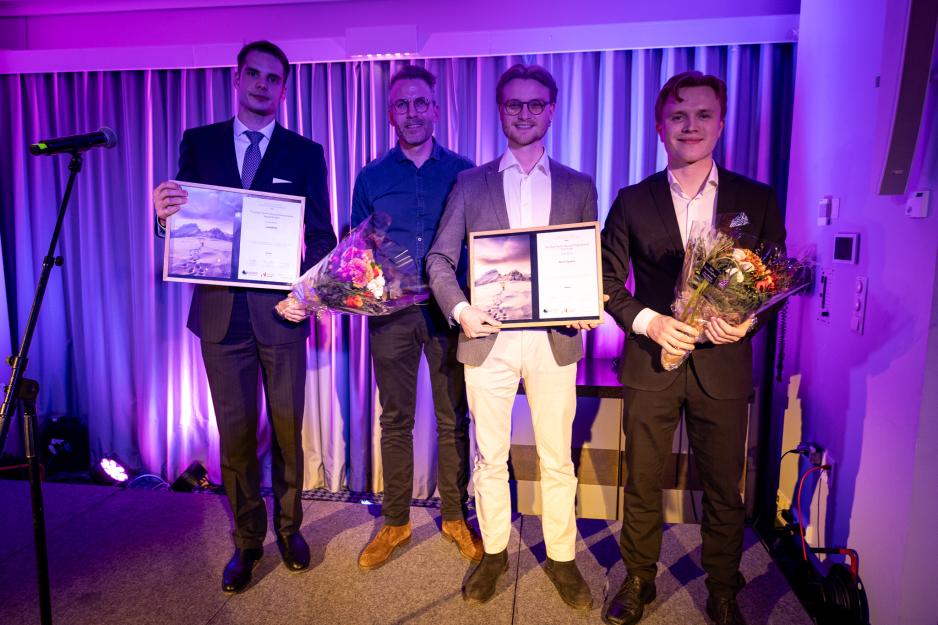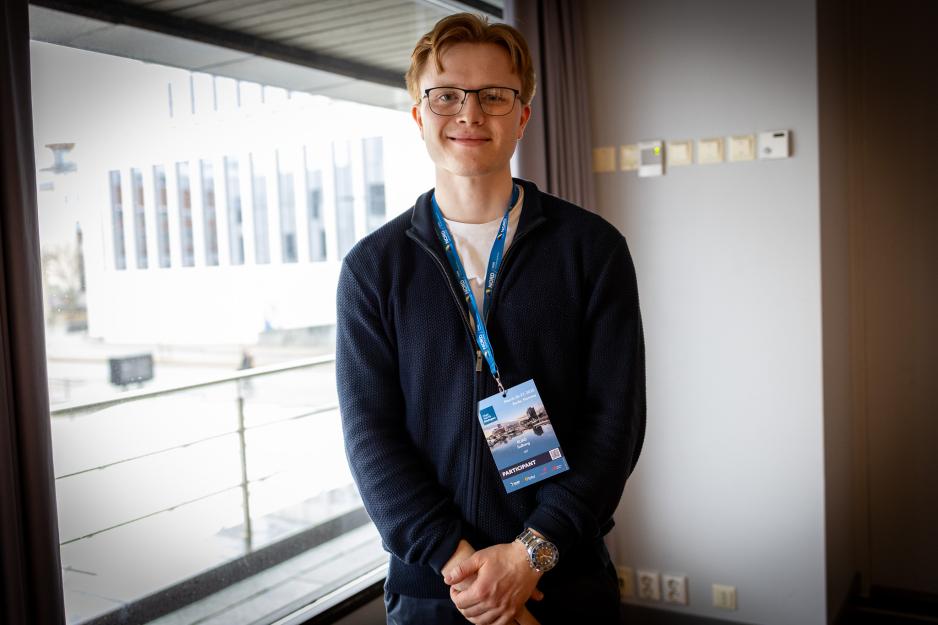Elias and his team want to turn an ocean problem into fish feed – and they just won an international prize for it

The finalists Pack Away AB, Marine Spark X AS, and cruise2feed during the High North Young Entrepreneur Award Ceremony. (Photo: Markus Thonhaugen / High North Center)
Turning a marine problem into a sustainable business idea has earned Marine Spark X the prestigious 2025 High North Young Entrepreneur Award.
The award is part of the High North Dialogue conference in Bodø, Norway, where young entrepreneurs from the Arctic pitch their business ideas.
The winner was chosen by the audience after a live competition between three finalists: Marine Spark X, Pack Away AB, and cruise2feed.
"It’s a big honor. There were three strong finalists, so to win means a lot," says Elias Nyheim Såstad Solberg, one of the six students behind the start-up Marine Spark X.
From ocean threat to opportunity
Marine Spark X impressed the crowd with a creative and timely idea: transforming invasive sea urchins — a major threat to the kelp forests — into sustainable fish feed.
"Sea urchins are a huge problem. They’re eating down the kelp forests, which are some of the world’s most effective carbon sinks. We saw the need to do something," says Solberg.

Elias Nyheim Såstad Solberg of Marine Spark X. (Foto: Markus Thonhaugen / the High North Center)
The project started in a university course in Tromsø, where the team first learned about the issue. Rather than simply removing the sea urchins, they began looking for ways to use them.
"Our industrial partner harvests sea urchins, but a lot of the material isn’t usable for their purposes. So we take that leftover material and turn it into fish feed. That way, we both reduce waste and help restore the kelp forests," he explains.
Learning from others
Solberg is originally from Lofoten, but the Marine Spark X team spans the country — with members from Oslo, Bergen, Bømlo, and Tromsø. All six are currently students at UiT – The Arctic University of Norway.
Although the idea shows strong potential, Solberg emphasizes that research plays a key role in developing it further.
"It’s a good business idea, but it also requires a lot of science. We’re in the early stages, and the next step is to set up a production line — hopefully, we’ll find funding for that soon."
Winning the award is not just about recognition, Solberg adds.
"It’s inspiring to meet people from all over the world and talk about both the challenges and solutions we’re seeing in the Arctic. Sharing what we’re working on and learning from others is a big part of this experience."

